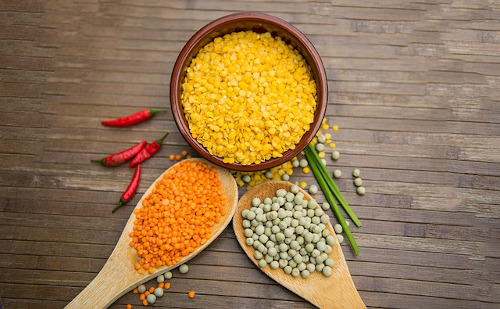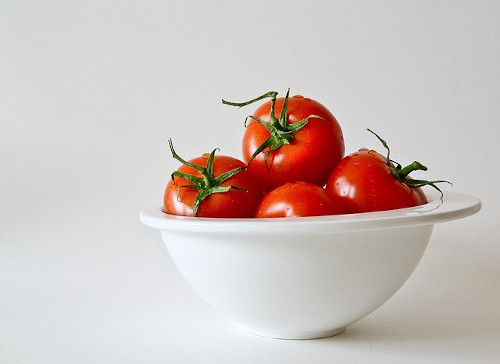Contents
Diet significantly impacts both male and female reproductive organs; this is why the best foods for reproductive health are so important. The sex organs enable a man and woman to reproduce themselves by bringing new life into being. The testes in men and the ovaries in women produce the sex cells: the sperm and the ovum. Man’s organs are designed to deliver the sperm, while the woman’s organs are fashioned to receive the sperm and permit a union of one of them with an ovum.

In addition, the woman’s reproductive organs include the uterus or womb, in which the fetus develops for nine months before its birth, and the breasts, which produce milk to nourish the baby after birth.
Besides the above, the testes in the male and the ovaries in the female produce sex hormones. These chemicals stimulate the development of various sex characteristics and maintain these masculine and feminine characteristics. While the sex organs are not essential for a healthy life, they do make possible the most intimate relations of marriage.
Related reading:
- Browse more Foods articles: https://naturalhealthmessage.com/nutrition/foods/
- Reproductive Health guides: https://naturalhealthmessage.com/conditions/reproductive-system/
- Supplements & reviews: https://naturalhealthmessage.com/supplements/
Best Foods for Reproductive Health
FEIJOA is a great addition to the list of best foods for reproductive health because it is rich in folates and iodine, which are very important during gestation.

TOMATOES are among the best foods for men’s reproductive health. Studies conducted at Harvard University show that men who regularly eat fresh tomatoes, as well as tomato sauce or juice, are at much lower risk of prostate cancer. This fact is easily explained, as tomatoes are the richest food source of lycopene, the carotenoid that protects the cells of the prostate from oxidation and abnormal growth.
Regular tomato consumption in any form is an important factor in the prevention of prostate cancer, one of the most frequent cancers among males. Bearing in mind what is known about the effect of lycopene on prostatic tissue, it may be deducted that regular tomato consumption promotes proper prostate function overall. In addition to preventing cancerous degeneration of its cells, tomatoes can also reduce excessive growth (benign adenoma or hypertrophy) of the prostate, which is so common in men beyond 50.
WHEAT GERM is a treasure trove of vitamins and healing properties, especially for male and female sterility from gonadal causes. Vitamin E promotes sperm production in males and is a great food for ovulation stimulation in females. Therefore, wheat germ is among the best fertility foods when trying to get pregnant.
SOY and its derivatives help women maintain hormonal balance because of its isoflavones (vegetable estrogens). The benefits derived are the following:
- Regulation of the menstrual cycle, particularly in pre-menopausal women.
- Relief from the symptoms of menopause: Regular consumption of soy or its derivatives rich in isoflavones (tofu, soymilk or beverage, soy flour, protein extract) helps alleviate the disorders associated with menopause.
SOY is also good for men’s disorders, which means it is a great addition to the list of the best foods for reproductive health. It is curious that soy’s phytoestrogens induce the beneficial effects of natural estrogen but without the side effects. This is the case for men as well as for women. Men who regularly eat soy enjoy the following:
- Lowered risk of prostate cancer. Japanese men have a lower mortality rate due to prostate cancer because of the consumption of soy products, particularly tofu.
CHICKPEA is on the fertility foods list because it is rich in folates, which prevent nervous system defects in the fetus. Additionally, chickpeas have a very high content of proteins, iron, and other minerals.
Eating LENTILS provides women with abundant iron to avoid pregnancy-related anemia, fiber to aid evacuation, and large amounts of folates that prevent fetal nervous system malformations. These legumes are highly recommended during pregnancy and should be eaten at least twice a week. Lentils are among the best fertility foods when trying to get pregnant.
SPINACH is rich in folic acid and folic content, which prevents certain fetal malformations; in addition to its anti-anemic action, spinach is an ideal addition to the list of the best foods for reproductive health for pregnant women.
Best Foods for Men’s Reproductive Health
Men should increase the consumption of:
- Carrots, spinach, broccoli, mangoes, and apricots since they’re excellent sources of beta-carotene, which, together with vitamins C and E, protects the sperm and prevents damage to their genetic code.
- Citrus fruits, kiwis, guava, and currants because of their richness in vitamin C. Four oranges or two kiwis a day provide the RDA of vitamin C.
- Wheat germ, almonds, other nuts, and avocado are good sources of vitamin E.
- Sesame, squash, and sunflower seeds because they supply zinc, which is necessary for sperm maturation.
- Legumes and vegetables, which provide folates, are necessary for sperm formation.
Best Foods for Female Reproductive Health
The diet for the prospective mother before conception is as important, if not more so, than it is during pregnancy, to give birth to a healthy baby and reduce the risk of congenital birth defects.
Best foods for reproductive health pertaining to women before becoming pregnant
- Eat abundant fruits, vegetables, and nuts to ensure an adequate supply of antioxidants (provitamin A, vitamin C, and E).

Foods to Avoid When Trying to Get Pregnant
Avoid folate deficiency: It is known that this deficiency causes a variety of malformations.
Avoid eating liver, foie gras, and pate. These tend to contain high vitamin A levels, which can cause fetal malformations.
Avoid meat, particularly if it is not well cooked, which can transmit toxoplasmosis. This disease causes fetal malformations.
Avoid obesity: Studies conducted in California proved that obese women are twice as likely to give birth to deformed infants.
Avoid weight-loss diets: Food restriction involves a smaller amount of essential nutrients for the correct formation of ova.
Health Disclaimer: The information on this website is for educational uses only and is not a substitute for professional medical advice. Always consult an authorized healthcare provider for any health concerns before using any herbal or natural remedy. We do not establish, treat, cure, or prevent any disease. Reliance on any material from this website is solely at your own risk. We are not responsible for any adverse effects resulting from the use of information or products mentioned on this website.
REFERENCES
- George D. Pamplona-Roger, M.D. “Encyclopedia of Foods and Their Healing Power.” George D. Pamplona-Roger, M.D. Encyclopedia of Foods and Their Healing Power. Trans. Annette Melgosa. Vol. 2. Chai Wan: Editorial Safeliz, 2005. 260, 277, 310, 269, 270, 29, 129, 92, 383.
- Hardinge, Mervyn G and Harold Shryock. “Family Medical Guide.” Hardinge, Mervyn G and Harold Shryock. Family Medical Guide. Ed. Marvin Moore and Bonnie Tyson-Flynn. Vol. Three. Oshawa; Washington, D.C.; Hagerstown: Pacific Press Publishing Association; Review and Herald Publishing Association, 1999. Three vols. 384. Print.
- United States Department of Agriculture (USDA) MyPlate recommendations: https://www.myplate.gov/eat-healthy/fruits https://www.myplate.gov/eat-healthy/vegetables
- Foods to avoid when trying to conceive: https://www.fda.gov/food/consumers/advice-about-eating-fish
